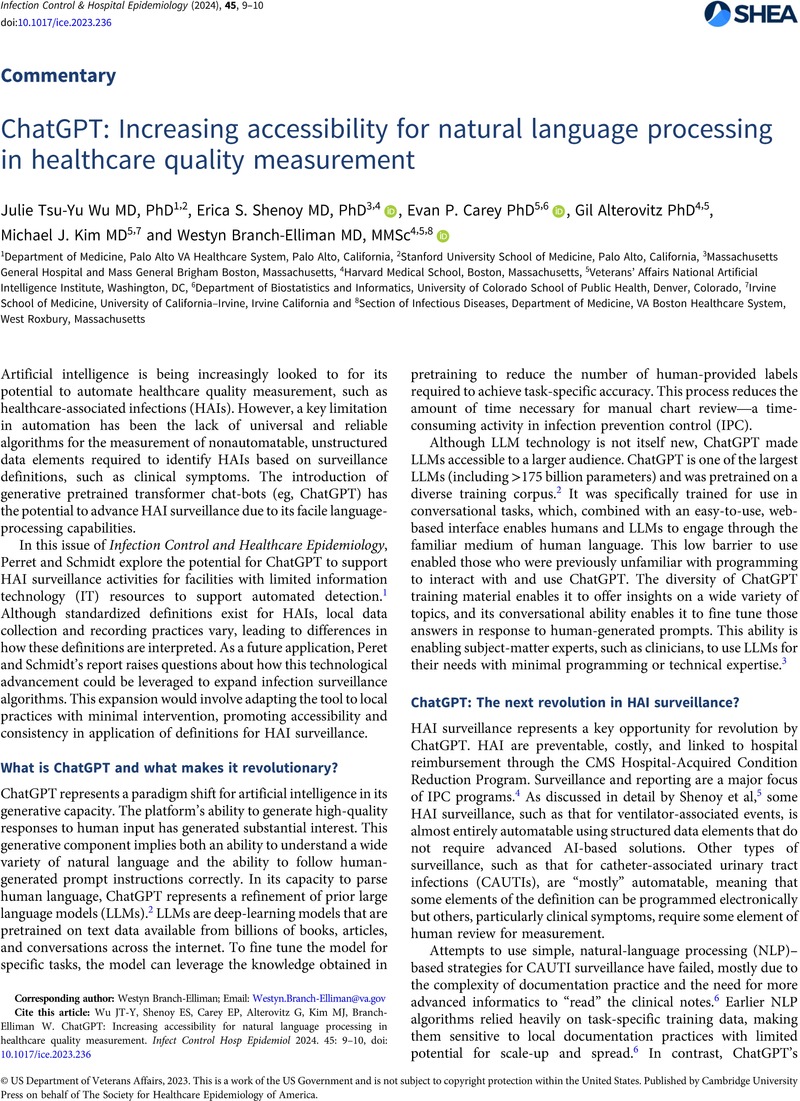Crossref Citations
This article has been cited by the following publications. This list is generated based on data provided by Crossref.
Langford, Bradley J
Branch-Elliman, Westyn
Nori, Priya
Marra, Alexandre R
and
Bearman, Gonzalo
2024.
Confronting the Disruption of the Infectious Diseases Workforce by Artificial Intelligence: What This Means for Us and What We Can Do About It.
Open Forum Infectious Diseases,
Vol. 11,
Issue. 3,






